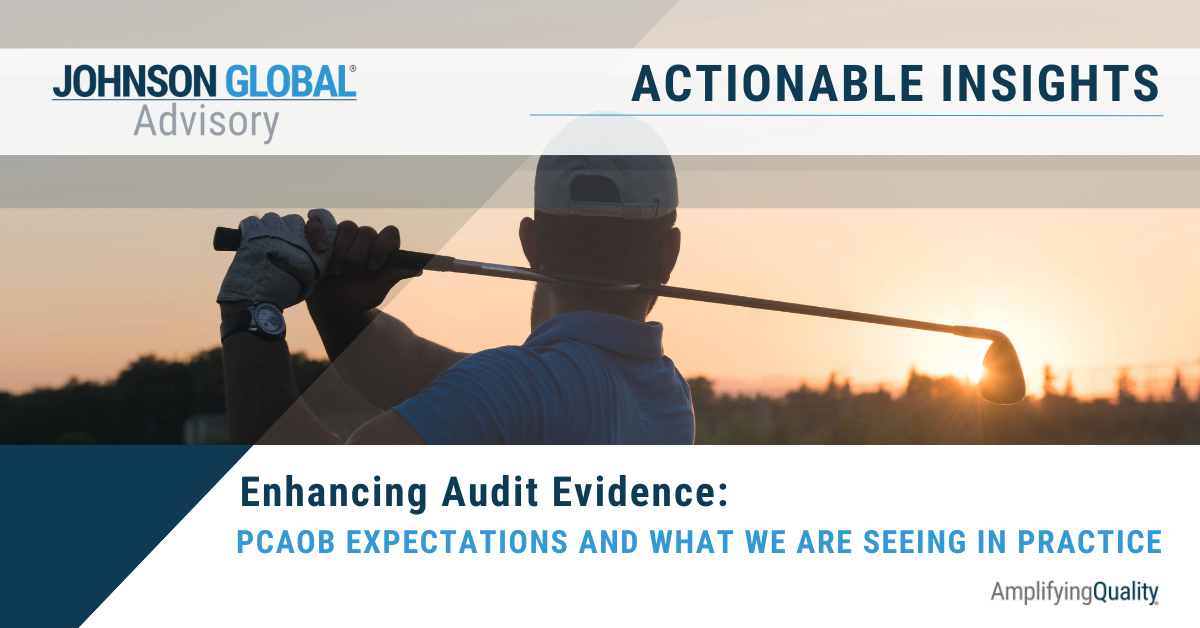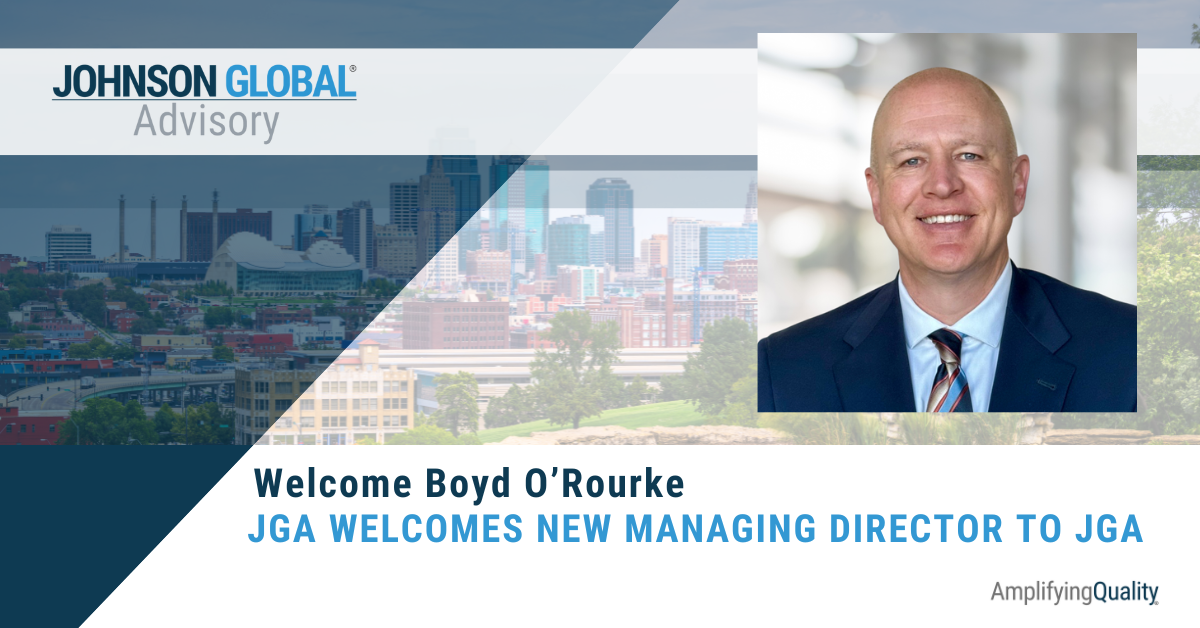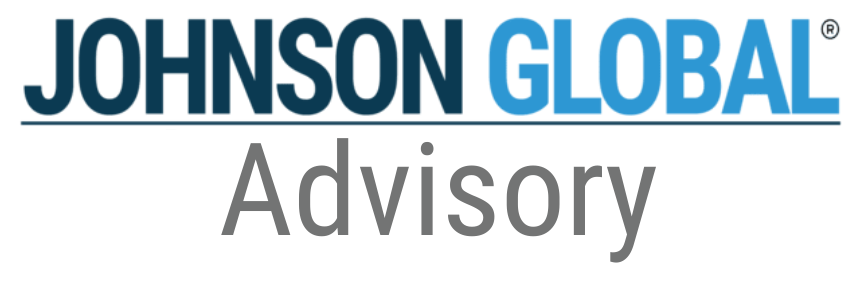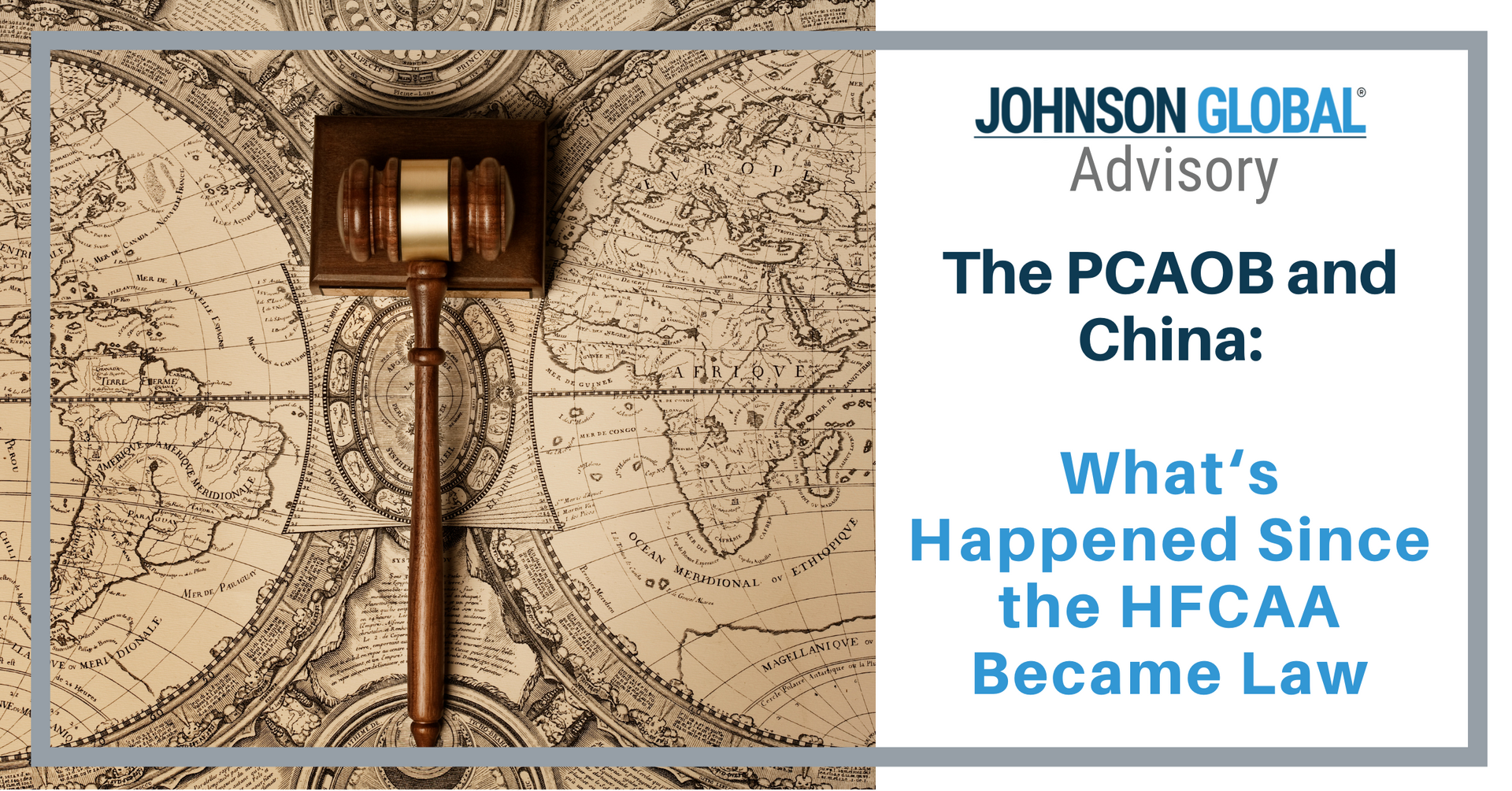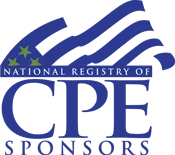The PCAOB and China: What’s Happened Since the HFCAA Became Law
Since the signing of the Holding Foreign Companies Accountable Act (“HFCAA” or “Act”) into law in December 2020, the Public Company Accounting Oversight Board (“PCAOB”), the accounting firms registered with the PCAOB that are headquartered in mainland China and Hong Kong (collectively, “China”), and their US-listed company clients have been very active.
Over the past three years we have seen –
- US-listed companies based in China change auditors to accounting firms in PCAOB-accessible jurisdictions;
- A game-changing agreement between China authorities and the PCAOB enabling unobstructed access to inspect and investigate China-based auditors registered with the PCAOB;
- The completion and publication of the PCAOB’s first full inspections of two China-based accounting firms; and
- The first enforcement actions of China-based firms as a result of using its full investigative authority.
We explore more about what has happened over the last three years, what China-based accounting firms may expect from the PCAOB in 2024, and the challenges they face.
The HFCAA and the PCAOB’s Initial Determination it was unable to Inspect and Investigate China Auditors Fully
The HFCAA was enacted to address the limitations on the PCAOB’s ability to inspect and investigate PCAOB-registered public accounting firms headquartered in China because of positions taken by authorities in the People’s Republic of China (“PRC”).
According to the HFCAA, the PCAOB is required to determine whether it is “unable to inspect and investigate completely because of a position taken by an authority in the foreign jurisdiction” (e.g., China and Hong Kong). This determination is made by the PCAOB Board annually in accordance with the PCAOB’s rules1. If the PCAOB does not have complete access for inspections and investigations for two consecutive years, the SEC would be required to prohibit trading in the securities of issuers engaging those audit firms2.
China-based US-Listed Companies Change Auditors
In December 2021, the PCAOB issued a report on its determination (the “Initial Determination”) that it was unable to inspect or investigate PCAOB-registered public accounting firms headquartered in mainland China and Hong Kong because of positions taken by the PRC3.
In March 2022, the SEC published a list of China-based US-listed companies that SEC staff identified were subject to possible trading prohibitions if the PRC did not permit the requisite access to the PCAOB, as required by the HFCAA. The SEC has continued to update the list on a rolling basis since March 2022, which now encompasses 174 companies (the SEC’s “Conclusive List”)4.
The reaction by many China-based companies from the PCAOB’s Initial Determination and their appearance on the SEC’s Conclusive List was to change auditors in an apparent attempt to avoid the threat of having their stock delisted in the United States. After the Conclusive List was first published, 24 of those companies changed auditors, according to an article published by NikkeiAsia.5
Accounting firms in the US and Singapore were the primary beneficiaries of the fallout, according to the article6. Accounting firms that were and may continue to be beneficiaries of the reshuffle should carefully consider whether they have the scalability and quality controls in place to take on multiple audit clients over a short duration. Although the PCAOB’s settled enforcement action with Marcum LLP7 is an extreme example of what can go wrong when accepting too many clients at once, any firm that has taken on multiple China-based clients in short duration is at a heightened risk of a PCAOB inspection, investigation, and possible enforcement action.
PCAOB Obtains Access to Inspect and Investigate Completely
In August 2022, the PCAOB announced that it signed a Statement of Protocol with the China Securities Regulatory Commission and the Ministry of Finance of the People's Republic of China, marking the first step toward opening access for the PCAOB to inspect and investigate PCAOB registered public accounting firms headquartered in mainland China and Hong Kong completely8. This was a game changer for the PCAOB and investors in US-listed companies with China-based auditors.
Inspection Results of the First Two Firms
As a consequence of the Protocol, the PCAOB was successful in conducting its first two full inspections of China-based audit firms in 2022. In December 2022, the PCAOB vacated its Initial Determination because of the full access it experienced9 and the SEC followed suit by acknowledging that there are no issuers currently at risk of having their securities subject to a trading prohibition10.
In May 2023, the PCAOB published the inspection reports of the two firms it inspected in 2022: KPMG Huazhen LLP (“KPMG Huazhen”) in mainland China and PricewaterhouseCoopers in Hong Kong (“PwC HK”). As the PCAOB suspected, there was a high rate of deficiencies, including part I.A deficiencies, which the PCAOB defines as having such significance that the PCAOB believed the firm, (i) at the time it issued its audit report(s), had not obtained sufficient appropriate audit evidence to support its opinion(s) on the issuer’s financial statements and/or ICFR or (ii) in audit(s) in which it was not the principal auditor, had not obtained sufficient appropriate audit evidence to fulfill the objectives of its role in the audit.
According to the inspection reports –
- KPMG Huazhen11 was the principal auditor of 30 US-listed audit clients and participated in the audits of 77 other US-listed company audits. Of these, the PCAOB selected four audits for inspection, all of which were determined to have Part I.A deficiencies.
- PwC HK12 was the principal auditor of three US-listed audit clients and participated in the audits of 27 other US-listed company audits. Of these, the PCAOB selected four audits for inspection, three of which were determined to have Part I.A deficiencies.
Deficiencies were numerous and found in the financial statement areas of cash, revenue (and related accounts), inventory, other investments, goodwill and intangible assets, long-lived assets, and significant transactions, and involved departures from the following PCAOB rules and standards:
- Audit evidence (AS 1105)
- Audit documentation (AS 1215)
- Communications with audit committees (AS 1301)
- Auditing internal control over financial reporting (AS 2201)
- Responding to the risk of material misstatement (AS 2301)
- Substantive analytical procedures (AS 2305.16)
- Audit sampling (AS 2315)
- Consideration of fraud in a financial statement audit (AS 2401.61)
- Auditing accounting estimates (AS 2501)
- Auditor reporting on financial statements (AS 3101)
- Form AP - reporting of certain audit participants (Rule 3211)
The PCAOB acknowledges that it is not unexpected to find numerous deficiencies in jurisdictions that are inspected for the first time and that the deficiencies identified by the PCAOB above are consistent with the types and number of findings the PCAOB has encountered in other first-time inspections around the world13. These deficiencies have not resulted in an enforcement action with these firms at this time.
These two firms will almost assuredly be inspected again in 2024 or 2025.
PCAOB Enforcement Activity
The PCAOB was also very active in sanctioning China-based accounting firms since it obtained access to fully investigate China-based accounting firms in the PRC. In 2023, the PCAOB published three settled enforcement actions with PCAOB registered firms based in China. Two of the cases involving PwC were the direct result of information learned in the inspections the PCAOB conducted in 2022 after securing complete inspection access, according to the PCAOB’s press release announcing the settlements14. The following summarizes the PCAOB’s findings and corresponding money penalties imposed (refer to the related Orders for other sanctions), according to the PCAOB’s Orders published on its website –
- PwC China and PwC HK violated the integrity and personnel management elements of the PCAOB quality control standards by failing to detect or prevent extensive, improper answer sharing on tests for mandatory internal training courses15. These firms agreed to collectively pay $7 million in money penalties to settle their cases.
- Shandong Haoxin and four of its auditors falsified an audit report, failed to maintain independence from their issuer client, and improperly adopted the work of another accounting firm as their own. Interestingly, the US-listed company that was the audit client disclosed in the Order (Gridsum Holding Inc.) is not listed on the SEC’s Conclusive List. The firm agreed to pay $750,000 and the four auditors collectively agreed to pay $190,000 to settle the matter16.
What to Expect in 2024
In a May 2023 news release by PCAOB Chair Erica Williams, she stated, “[t]he two firms we inspected in 2022 audited 40% of the total market share of U.S.-listed companies audited by Hong Kong and mainland China firms, and we are on track to hit 99% of the total market share by the end of this year.” 17 In addition, The 2024 PCAOB Budget includes the resources necessary to continue to drive inspection activities in support of the PCAOB’s mission to protect investors, “including inspecting the remaining firms registered in mainland China and Hong Kong under our mandate.”18
These statements suggest the PCAOB continues to have unobstructed access to inspect and investigate PCAOB registered firms in China and Hong Kong. Accordingly, it is expected that –
- The PCAOB will release the inspection reports of the accounting firms that comprise the remaining 56% of the 99% of the total market share of U.S.-listed companies audited by China accounting firms in or about May 2023, and we anticipate those reports to continue to reveal that firms based in China have a lot of work to do to improve audit quality.
- Any remaining China-based accounting firms that have not been inspected—those making up the remaining 1% of the total market share—and follow-up inspections on those initially inspected are likely to occur this year, in 2024; and
- The PCAOB’s Division of Enforcement and Investigations will likely have continued to receive referrals from the Inspection Division as a result of the 2023 inspections of China-based accounting firms, and there will be multiple enforcement actions in 2024 or later as a consequence.
What Firms in HK and China Should Do Now
Prepare for initial inspection: An inspection is an examination of both the firm’s quality control policies and selected applicable client engagements. In essence, the inspection begins before the firm has even started an audit. An effective system of quality control provides the firm with reasonable assurance that its personnel comply with applicable professional standards and the firm’s standards of quality. In addition to reviewing the firm’s quality control documentation, the inspectors will review the audit work papers of the selected audits. Therefore, it is imperative that audit documentation be robust, easy to follow, provide a clear road map from planning and risk assessment to the conclusions reached, and is fully assembled in compliance with PCAOB standards. The achievement of these two objectives will go a long way toward making the firm’s initial inspection a smooth one.
Post-inspection: The next step for firms after their initial inspection is to perform a root-cause analysis and remediate. A sound remediation plan that includes (i) focused training (ii) enhancements to policies, procedures, and methodologies; (iii) the adoption of PCAOB-specific audit tools and templates; and (iv) the implementation of pre-issuance reviews on riskier audits and post-issuance reviews of completed audits are just a few of the things firms can do to prevent poor inspection results and avert a referral to enforcement.
Conclusion
In sum, every audit should be conducted with the highest level of quality and with the notion that your audit will be selected for a PCAOB inspection. The published inspection reports and enforcement actions of the China-based accounting firms should serve as a guide. Read them carefully and revisit the standards cited therein to understand precisely why the firms were criticized and how the standards should be applied. Make audit quality your top priority.
- PCAOB Rule 6100.
- This was originally three years in the HFCAA, it was reduced to two years with the singing of the Consolidated Appropriations Act, 2023.
- PCAOB Makes HFCAA Determinations Regarding Mainland China and Hong Kong.
- The list is located on the SEC’s website at SEC.gov Holding Foreign Companies Accountable Act.
- Chinese companies switch auditors to avoid U.S. delisting risk - Nikkei Asia, May 16, 2023.
- Id.
- See PCAOB press release: Imposing $3 Million Fine and Requiring First-Ever Changes to Supervisory Structure, PCAOB Sanctions Marcum LLP for Significant Quality Control Violations | PCAOB (pcaobus.org)
- PCAOB Signs Agreement with Chinese Authorities, Taking First Step Toward Complete Access for PCAOB to Select, Inspect and Investigate in China | PCAOB (pcaobus.org).
- FACT SHEET: PCAOB Secures Complete Access to Inspect, Investigate Chinese Firms for First Time in History | PCAOB (pcaobus.org)
- SEC.gov | Holding Foreign Companies Accountable Act
- 2022 - KPMG China - Inspection Report
- 2022 - PwC Hong Kong - Inspection Report
- PCAOB Secures Complete Access to Inspect, Investigate Chinese Firms for First Time in History | PCAOB (pcaobus.org)
- FACT SHEET: PCAOB Imposes Historic Sanctions on China-Based Audit Firms
- In the Matter of PricewaterhouseCoopers and In the Matter of PricewaterhouseCoopers Zhong Tian LLP
- In the Matter of Shandong Haoxin Certified Public Accountants Co., Ltd., et al
- PCAOB Releases 2022 Inspection Reports for Mainland China, Hong Kong Audit Firms | PCAOB (pcaobus.org)
- Chair Williams’ Statement Before the SEC Open Commission Meeting on the PCAOB’s Proposed 2024 Budget | PCAOB (pcaobus.org)
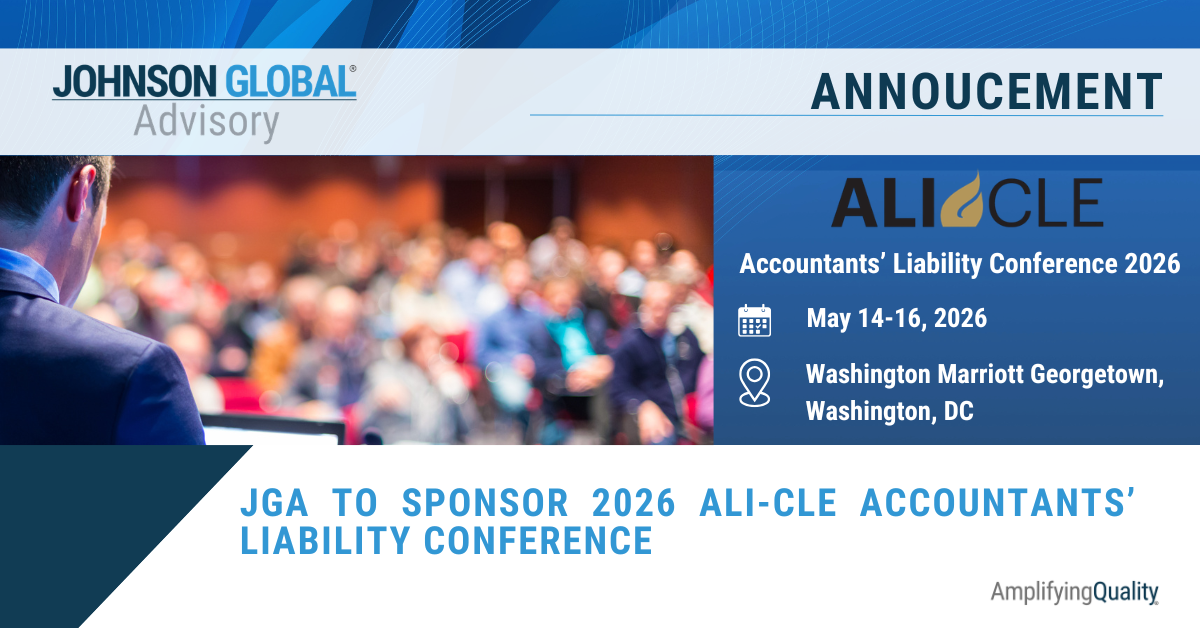
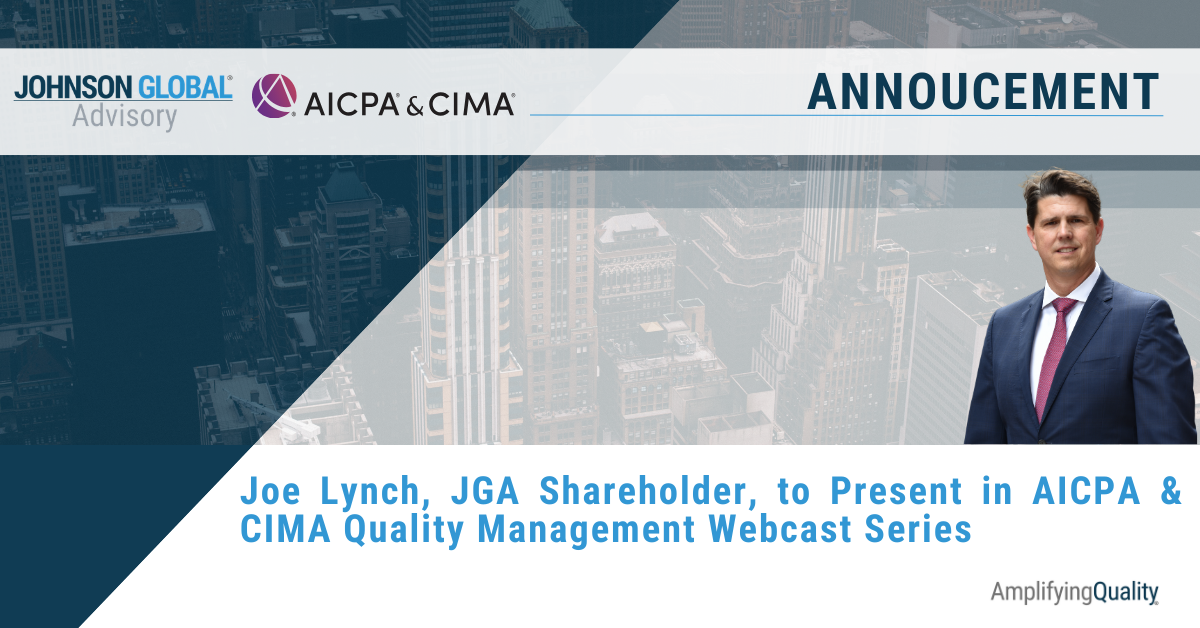
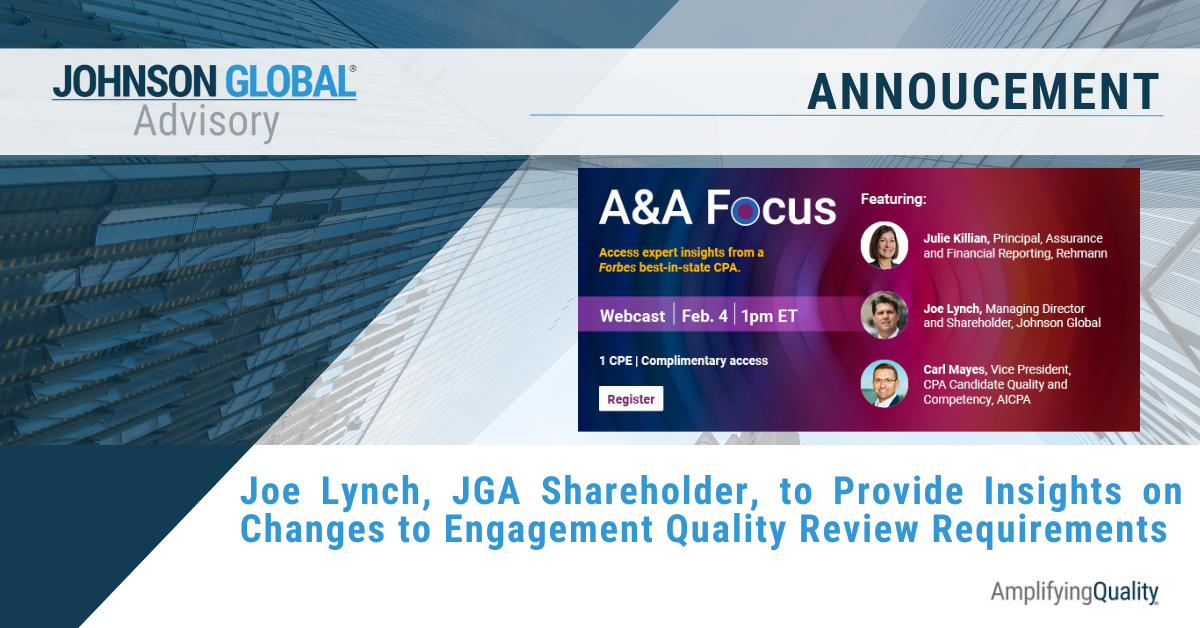
Joe Lynch, JGA Shareholder, to Provide Insights on Changes to Engagement Quality Review Requirements


